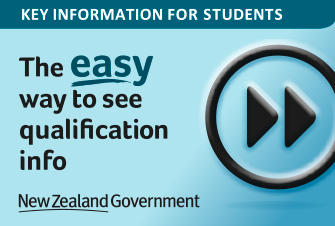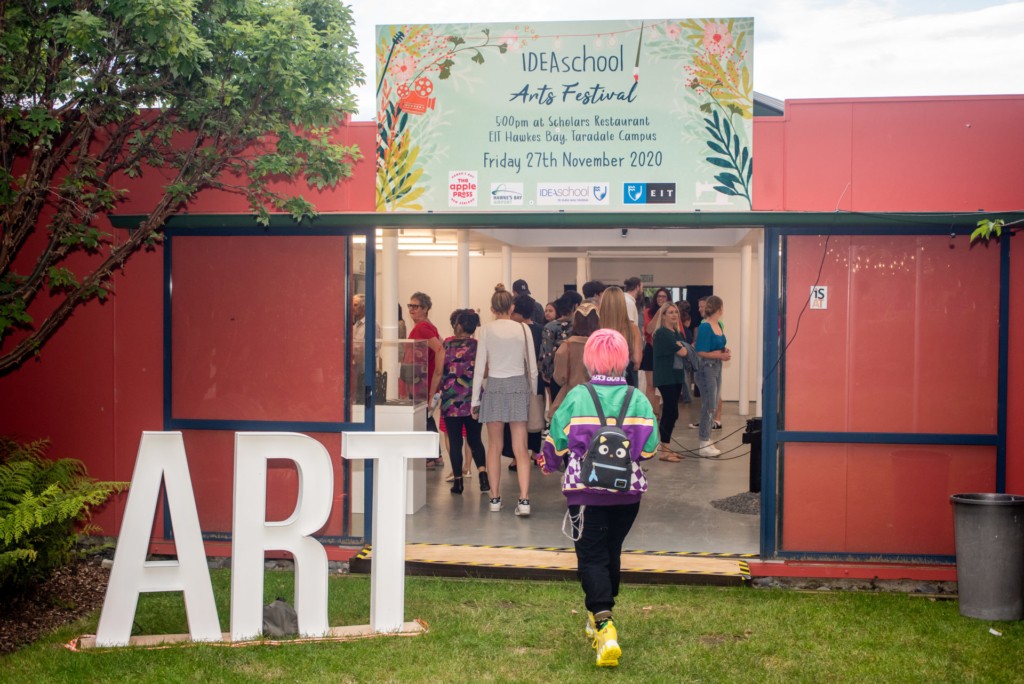- Home
- IDEAschool / Creative Studies / Arts & Design / Fashion / Music / Screen Production
- Bachelor of Creative Practice
Bachelor of Creative Practice
Location
Study Options
Full-time, Part-time
Length
3 years
Level
Level 7
Start your career in the creative industries
Do you want to turn your creative passion and talent into a successful career? The Bachelor of Creative Practice has you covered.
It is New Zealand’s first project-based creative degree which sets you up for a job in the creative industries or almost any other vocation. Engaged in real-life and on-campus projects, you can explore a range of creative disciplines such as design, fashion, music, screen production or visual art. Throughout the programme you will specialise in your preferred creative area while also developing broader skills by enabling you to experience artistic disciplines. The degree is a well-rounded qualification that gives you transferable skills to boost your job prospects and help you stand out from the crowd.
You can kick off the degree by studying one of IDEAschool’s diplomas (Level 5 Diploma in Fashion, Arts and Design, Music or Screen Production) and then progress to Levels 6 and 7 of the degree.
Your future career and study opportunities
Possible jobs and career opportunities can include:
Painter, printmaker, sculptor, illustrator, musician, singer, film maker, director, producer, book cover designer, photographer, composer, stylist, curator, exhibition manager, designer (including web, graphic, animation, character, architecture, costume, set, advertising, branding, interior, fashion, furniture, book cover), sound technician, Nga Toi and Pacifica practitioner, cultural advisor, organiser, garment pattern cutter, apparel sample machinist, garment specification technician, event coordinator, arts business management or administration, gallery or museum curator.
Further your study pathway with an Honours or Masters degree.
Outline
Overview
During IDEAschool’s Bachelor of Creative Practice (BCP) programme you will learn through hands-on engagement with the ideas and technologies associated with Design, Fashion, Music, Screen Production and Visual Art.
The programme will teach you a wide range of technical skills that are essential to successful practice in the creative industries today. You will learn software as well as traditional methods of creating Design, Fashion, Music, Screen Production and Visual Art. You will be challenged to develop your powers of creative thinking and idea generation. These, together with developing mastery of media techniques, will enable you to make work that is both professional and personally satisfying. In the second and third years of the degree you will drive your creative direction with increasing independence.
IDEAschool has a suite of up-to-date and well-appointed workshops and technologies along with the expert tuition to help you navigate and master them. Course content reflects the cultural concerns specific to Aotearoa New Zealand as well as wider contemporary global trends and influences. EIT | Te Pūkenga and IDEAschool maintain strong relationships with the local and national creative communities and connects with these to create opportunities for you beyond the classroom.
As a graduate of the BCP you will be able to:
- Apply specialised skills and learned principles to generate creative and workable concepts and works based on an understanding of contemporary and historic contexts and on research by creative practice.
- Synthesise and resolve ideas and solve problems in a selected creative discipline by utilising investigative tools with creative processes, methods and technologies.
- Critically analyse research to support and enhance the development of ideas and to position your own work within the conventions of the creative arts and within contemporary Aotearoa and global contexts.
- Apply leadership, professional practice and collaboration skills in working both individually and collaboratively in multi-cultural and/or multidisciplinary teams to manage and implement projects/briefs.
- Create works that are relevant to and reflect a stance in relation to cultural, ethical, political, social, economic and environmental factors.
- Maintain professional currency by engaging in continuing inquiry, self-education and experimentation to sustain your creative skills and manage your creative practice.
Subject areas
Subject areas at Level 5 include:
- Graphic Design: Adobe Creative Suite industry standard software including Photoshop, Illustrator, InDesign, Premiere, After Effects (dependent on projects)
- Drawing Technology
- 3D Design/Sculpture: wood, clay, metal, plastics
- Spatial, Object and Architectural Design
- Print: silkscreen and press printing
- Paint: acrylics, oils, new media, art and design history, art theory
By weaving your way through the various projects that form this degree, you will learn the key skills, techniques and theory needed to become professional visual artists and designers. Some projects are individually focused, others are collaborative, some are prescribed, others demand self-directed learning – and all projects are situated within the context of the local, national and global visual arts and design world.
Subject areas at Level 6 and 7 include:
- Design, Fashion, Music, Screen Production and Visual Art
What to expect
Year one
There are four projects at Level 5, all four are core to the degree. These projects are largely prescribed, involve both individual and group learning and include the key foundational creative skills, techniques and theory required at degree level.
Year two
You will complete five projects at Level 6. There is an opportunity in the second semester for you to choose between two options: individually working towards an external outcome (such as a competition) or a group project with an external client.
The Level 6 projects are increasingly self-directed, ensure the development of a stronger global understanding of creative industries and include increasing professional skills such as basic marketing and business management, as well as legal issues relative to the individual creative practice.
Year three
You will complete three projects at Level 7. There is an opportunity in semester one to choose between two response options: studio time or work experience and in the second semester one project.
In the final semester, you will work towards a large, publicly accessible end of year exhibition, performance, screening or fashion show.
Entry
Entry requirements
Admission to the BCP programme may be limited by the number of places available.
Academic requirement
The academic entry requirement for the BCP is either:
- University Entrance, as defined by the NZQA; or
- Evidence regarded as sufficient by the Discipline Leader of the capability to undertake and complete the programme of study; or
- At the discretion of EIT | Te Pūkenga, where the applicant is over 20 years of age and demonstrates the capability to undertake and complete the programme of study.
All applicants are required to attend an interview (and may bring whānau support).
Applicants must provide a hand-written letter of application and a portfolio of work that represents their level of achievement at the interview.
English language entry requirements
All applicants must demonstrate an acceptable level of English language fluency prior to acceptance in the programme.
For international applicants, ways in which English language fluency may be demonstrated include the following:
- Successful study of a programme in which English was the language of instruction (subject to the conditions in the EIT | Te Pūkenga Database for English Language Proficiency (DELP)).
- Completion of a New Zealand Certificate in English Language (Level 4 with any endorsement).
- IELTS Academic score of 6, with no band score lower than 5.5, achieved in a single test within the two years preceding enrolment.
- Accepted international equivalents to the above IELTS scores, achieved in a single test within the two years preceding enrolment (see equivalency tables in the DELP).
Entry with credit
Level placement through recognition of prior learning (RPL)
RPL is the mechanism by which the programme ensures that students are placed at an appropriate level. On the basis of evidence provided at an interview and the presentation of an application portfolio, applicants may be granted RPL and be placed in Levels 6, or 7 of the programme. Applicants may be awarded credit for whole levels of the programme in this way.
For information and enquiries about RPL and Cross Credit please contact Irina Konig on 06 830 5021, ikonig@eit.ac.nz.
International entry requirements
Entry requirements
A person is eligible to apply for entry who:
- Can satisfactorily prove that they have the potential to succeed on the programme and is over the age of 20 by the official start date of their programme of study.
An offer of place on the programme will be extended to applicants who meet the entry criteria and demonstrate the potential to successfully complete the programme on the basis of:
- A hand-written letter of application
- A portfolio of work that represents the applicant’s level of achievement
- An interview
- Evidence of ability to cope with the academic demands of the programme
- Curriculum vitae
Applicants who submit a formal application to enrol on the programme including a handwritten letter, and who meet the entry criteria will be invited to submit a portfolio of work and attend an interview. Applicants are also encouraged to bring a workbook showing the creative process (e.g. drawings, designs, film/video etc) to the interview.
The purpose of the interview is to assess the applicants’ portfolio of work and suitability for the programme. The interview provides an opportunity for staff to confirm the authenticity of the applicant’s portfolio, and appraise and discuss work in considering the applicant’s suitability for admission. It will determine whether an applicant is offered a place on the programme, and if so, at what level of the programme the applicant will be offered a place. The interviewers will include two or more of the academic staff.
Please note: this process means that those applicants who do not successfully complete the selection process, even if they have achieved University entrance, may still not be offered a place on the degree. Instead, they may be offered a place on the diploma or certificate of visual art and design.
English language entry requirements
All applicants must demonstrate an acceptable level of English Language fluency prior to acceptance in the programme. English Language fluency can be verified by achievement of one of the following within the last two years:
- New Zealand Certificate in English Language Level 4 (Academic)
- IELTS (Academic) score of 6.0 with no band score lower than 5.5
- PTE (Academic) score of 50 with no band score lower than 42
- International equivalents to IELTS accepted by NZQA or successful study of a programme in which English was the language of instruction (conditions apply)
Academic learning services
Academic Learning Services is here to assist you on your journey towards the successful completion of your studies at EIT | Te Pūkenga. Our aim is for you to become confident, competent and independent learners.
We have dedicated advisors who can assist with your learning.
Find out more:
Scholarships
 EIT | Te Pūkenga offers a variety of scholarships across various subjects and programme levels. Some scholarships are based on your age, some are specific to the subject you want to study. Not all scholarships are based on your academic ability and anyone wanting to study should investigate what scholarships are available to them.
EIT | Te Pūkenga offers a variety of scholarships across various subjects and programme levels. Some scholarships are based on your age, some are specific to the subject you want to study. Not all scholarships are based on your academic ability and anyone wanting to study should investigate what scholarships are available to them.
You can find a list of EIT | Te Pūkenga scholarships here however there are many more scholarships offered nationally. Information about these is on an database called “givME”. givME is accessible at EIT | Te Pūkenga or at some public libraries. If you would like to come to EIT | Te Pūkenga to look through the giveME database don’t hesitate to contact scholarships@eit.ac.nz or call in for a chat.


